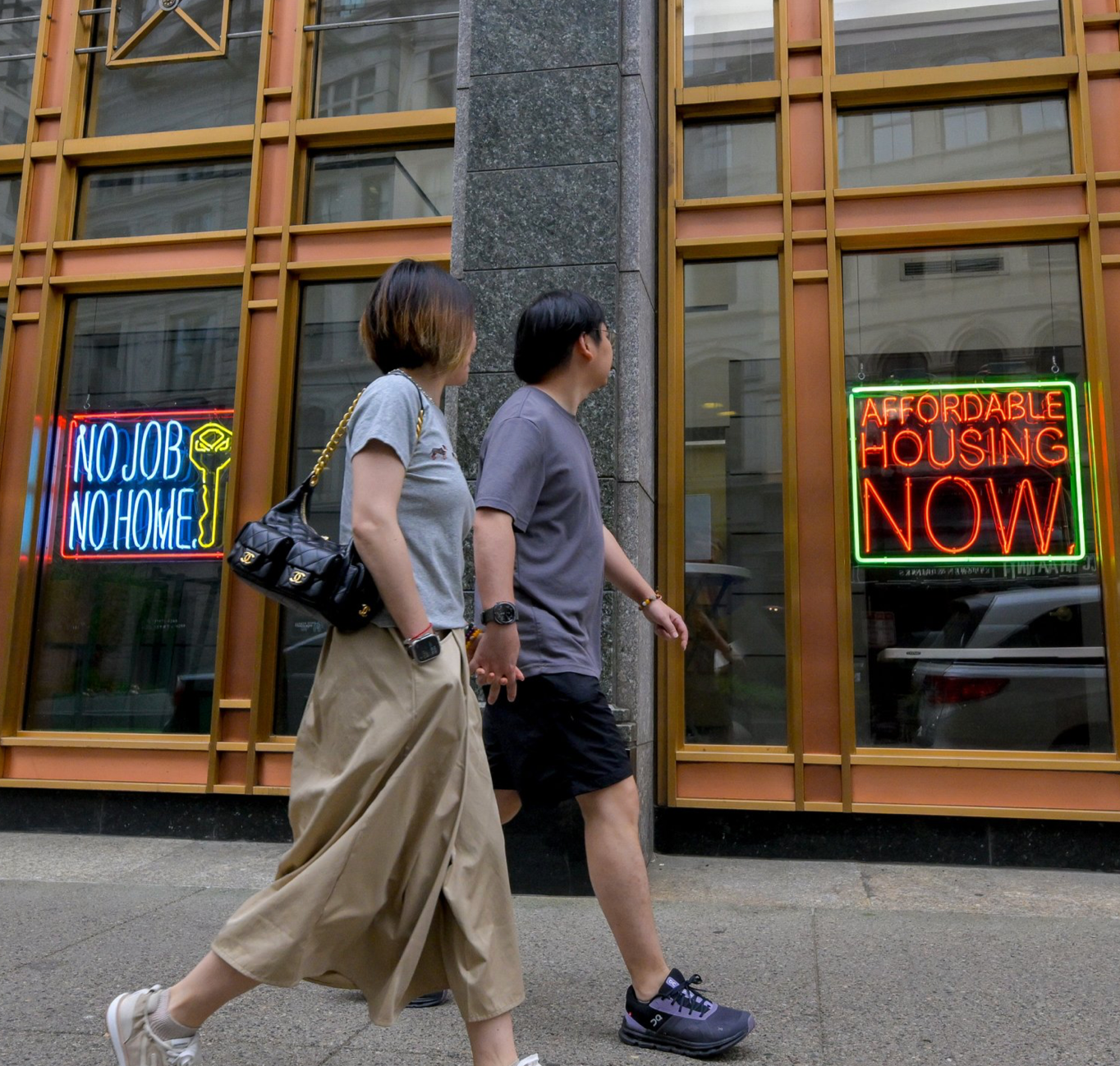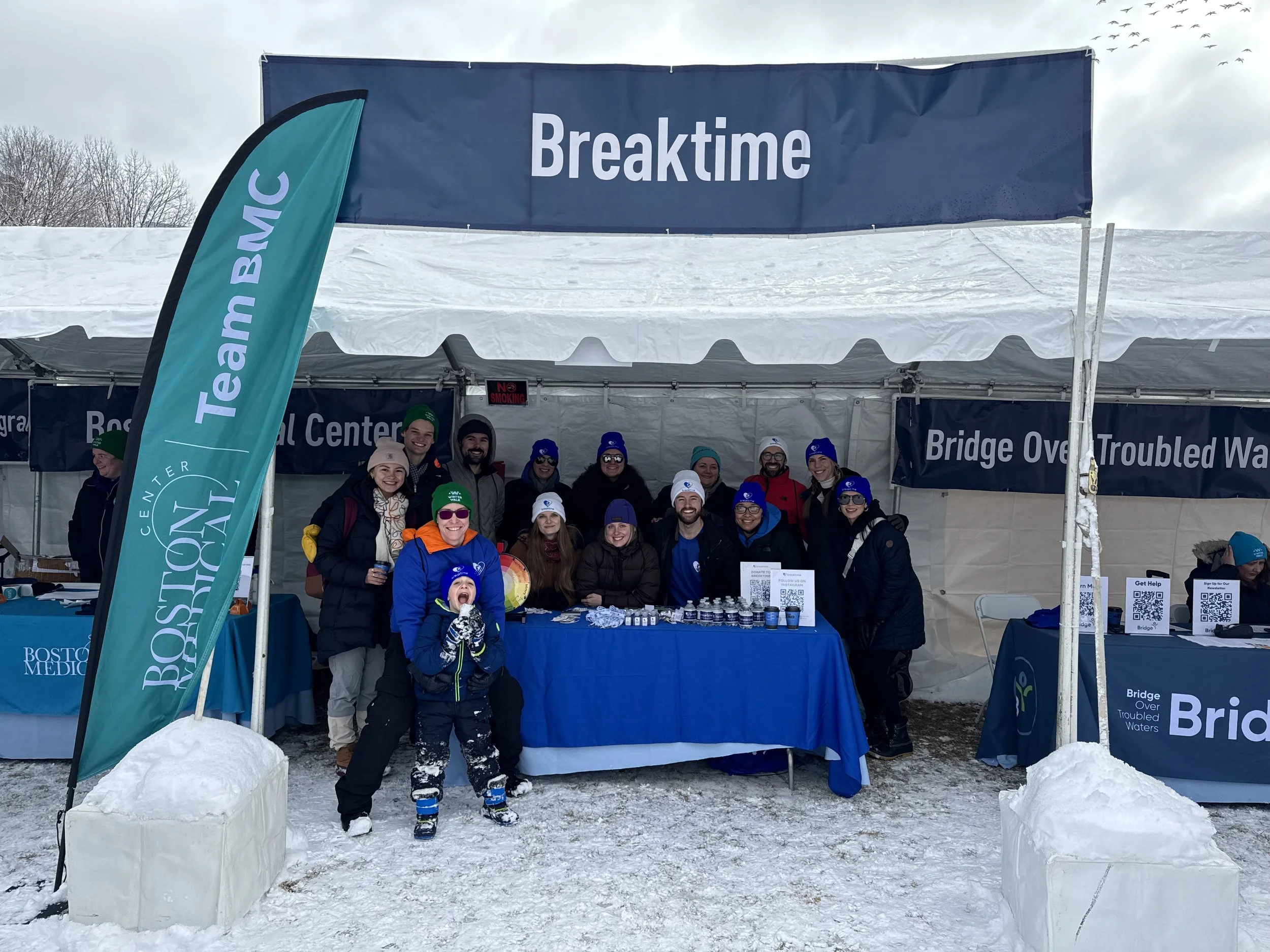Ending Homelessness with Breaktime Boston
Winter Walk is proud to support the work done by our Organizational Partners (OPs), the service providers administering aid to the unhoused people that live in the cities we walk in 365 days a year. Winter Walk gives 100% of the funds raised at our Walk Events to our OPs; with walks in Boston, Chicago, New York, Philadelphia and Tallahassee, we’re on a mission to grow our walk program nationally. Learn more about becoming a Winter Walk OP here.
Breaktime
Boston, MA
breaktime.orgThe Winter Walk team recently had the pleasure of interviewing members of the incredible team at Breaktime, located at 63 Franklin St in Boston, to learn more about their work and commitment to the unhoused communities in our city.
Hello Breaktime! We’re so excited for the chance to talk with you today about the incredible work your organization does. Could you start by telling us a little bit about your work and your approach to ending homelessness?
Breaktime’s mission is to break the cycle of homelessness by equipping young adults with the job and financial security they need to achieve stable housing. We are a Boston-based nonprofit dedicated to ending young adult homelessness through purposeful employment and empowerment. By hiring and supporting young people experiencing housing insecurity, we help them build income, confidence, and community.
“We don’t just offer jobs. We launch journeys.”
Who does Breaktime serve?
At Breaktime, we believe every young adult deserves a stable foundation and a future full of possibility. Last year, our programs supported around 200 young adults ages 18 to 25 who are at risk of or experiencing homelessness. Now, with plans underway to transform our new building into a comprehensive Hub for Solving Young Adult Homelessness, we’re setting our sights higher - aiming to reach and uplift 5,000 young adults within the next five years.
One exciting step in that journey happened this past May, when Breaktime participated in the first Boston Public Art Triennial. We partnered with artist Patrick Martinez, who met with Breaktime Associates last year to hear their stories and perspectives. Inspired by these conversations, he created a series of neon signs using direct quotes from the young adults themselves and amplifying their voices through public art. Two of these signs are now installed at our new Hub at 63 Franklin Street, and others are displayed on buildings throughout Downtown Crossing.
Breaktime Associates, staff, and guests pose together for a photo in their Booth at the 2024 Winter Walk in Boston Common
We are SO EXCITED about the Breaktime Hub, Congratulations! What an incredible resource for young people in our area, and one we are sure will become a model for other cities around the world. We are so lucky to have you as an organizational partner in our Walk program - can you tell us how you plan to use the funds raised at this year’s Winter Walk on Boston Common?
Breaktime is excited to leverage the generous support from the 2025 Winter Walk to help young adults who are experiencing housing, employment, and financial insecurity. With this funding, we’ll provide critical basic needs, personalized case management, paid transitional employment, and workforce development programs. These services are designed to empower young adults financially, build long-term stability, and help them thrive on their path to permanent housing.
What are the greatest needs Breaktime has in 2025?
Breaktime’s greatest need in 2025 is raising awareness about our new Hub for Solving Young Adult Homelessness. This first-of-its-kind space will allow us to centralize critical services for young adults experiencing housing insecurity. We want to build more awareness about our Hub and the expansion of our services so that young adults looking for support aren't challenged with navigating multiple complex systems. Our goal is to provide young adults with every resource they might need in one place, removing additional stress and transportation barriers. In order to reach as many young adults as we can, we need more people in Greater Boston learning about Breaktime and referring young adults to our services.
We also want folks to know that the Hub will include a workforce training center to grow Breaktime’s employment program, which is built around a three-phase model designed to support each young person’s long-term success:
Launchpad: Associates, the young adults we support, begin with onboarding, job training, and wraparound support to establish a strong foundation.
Liftoff: Associates transition into paid employment with Breaktime’s partners across Boston, gaining experience, confidence, and a steady income.
Stable Orbit: After completing the program, Associates move on to full-time work, education, or independent housing - with tools to thrive and continued support to stay grounded.
In addition to workforce development, the Hub will feature a welcoming drop-in space where young people can shower and do laundry, a clinic to support both physical and mental health, and a social enterprise that directly employs young adults on-site.
What is something you wish everyone understood about homelessness?
Homelessness is severely misunderstood. Usually when we say homelessness, we think of people on the streets. This is only a fraction of the issue, particularly for young adults. Most of the experience of housing insecurity for young people ages 18 to 25 includes temporarily living with friends or family with no guarantee that they’ll be able to stay long-term and no immediate path to secure financial and/or housing stability. Until we address the root causes of homelessness, many young adults experiencing it will remain trapped in a cycle of housing insecurity.
Some common forms of “hidden” homelessness for young adults include:
Couch surfing
Living in cars
Being on the verge of losing housing
Doubling up and/or staying with friends
Not having stable family or a financial safety net
Staying in college dorms with no place to return to for holiday breaks
What is something you wish everyone knew about unhoused people?
One of the most common misconceptions about people experiencing homelessness is that it is the result of personal choices. In reality, many face housing insecurity due to circumstances outside their control, such as job loss, car troubles, medical conditions, family neglect or abuse, and emergencies. The lack of affordable housing and employment opportunities, coupled with low wages, can also contribute to housing insecurity. Navigating these challenges within systems that were not built to support these young adults only adds to the burden. At Breaktime, we want more people to recognize the humanity in every individual, regardless of their housing status, identity, or background. A more compassionate society begins with seeing each other fully and choosing kindness.
How can people help Breaktime?
The month of November is recognized as National Youth Homelessness Awareness Month (NYHAM), a time for communities across the country to shine a light on the millions of youth who experience homelessness each year. Breaktime leads a month-long campaign focused on the prevalence of young adult homelessness and how it manifests. As part of its NYHAM programming, Breaktime hosts several community events, at which we hope to see you! With your participation, we can create a culture more accepting and empathetic toward people experiencing homelessness in our communities.
For more ways to get involved, check out Breaktime’s website.
Thank you so much for your time and we can’t wait to walk with you again on Boston Common in February!
Winter Walk is a nonprofit on a mission to end homelessness in America.Winter Walk hosts walk events in major cities across the United States designed to raise funds for local service organizations while building community between housed and unhoused people, and offers educational services to the public designed to eliminate the stigma associated with homelessness. At a time when homelessness is increasing across America, Winter Walk believes that ending homelessness is within our reach – and it starts with ending stigma. Winter Walk uplifts the voices of those who have






